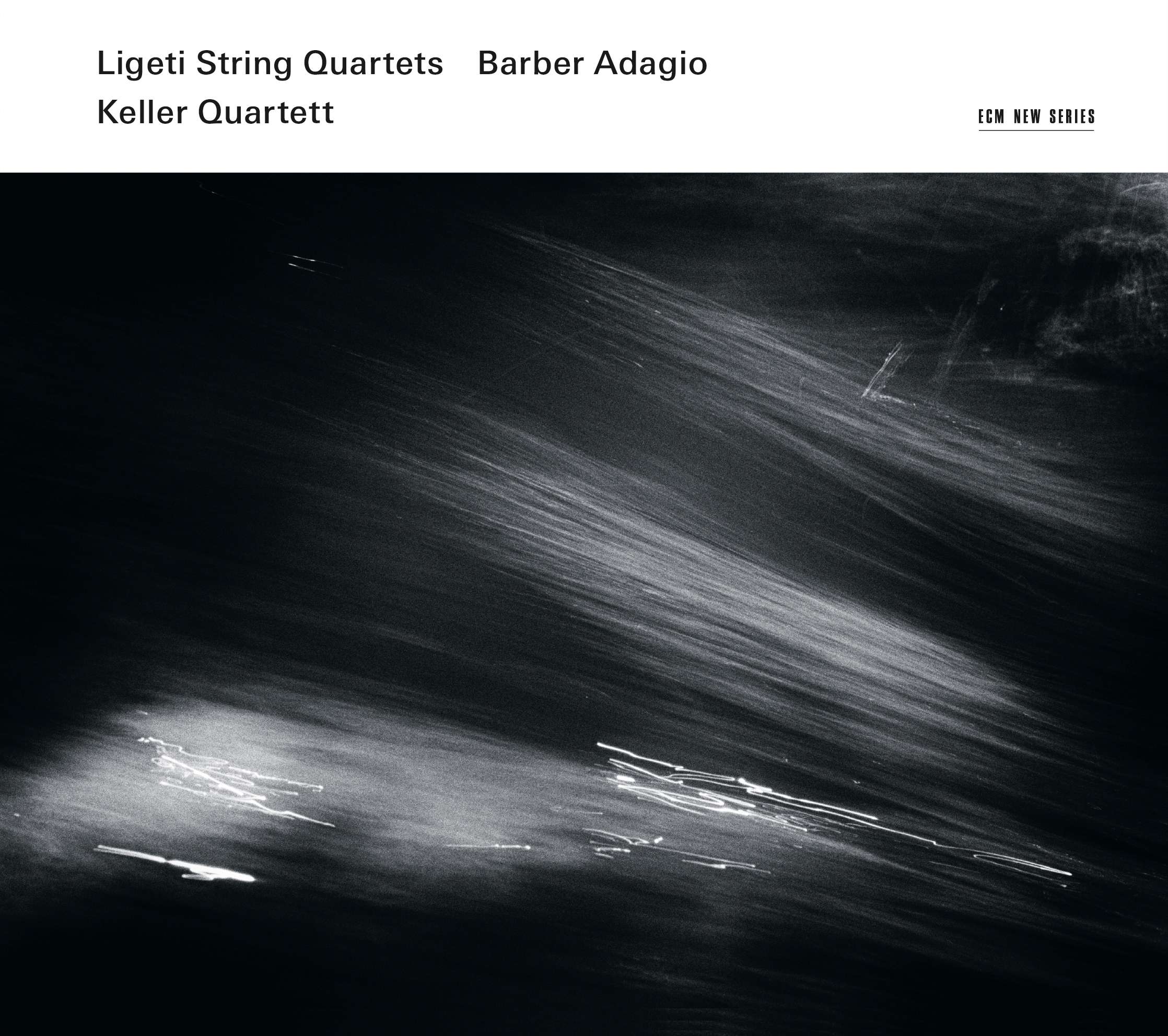|
Back
07/26/2013
György Ligeti: Quartets No. 1 "Métamorphoses nocturnes" & No. 2
Samuel Barber: String Quartet, Op. 11: Molto adagio
Keller Quartet: András Keller (violin 1), János Pilz (violin 2), Zoltán Gál (viola), Judit Szabó (violoncello)
Recorded at Radio Studio DRS, Zurich (June 2007 and October 2011) – 50'52
ECM 2197 – Booklet in English

   
This disk reveals more aspects of György Ligeti, the man whose music crept up unannounced to the world in the film 2001: A Space Odyssey. Among his many works he wrote two string quartets, one in 1952-53 (although not performed until 1958 in Vienna after the composer had left Hungary) and the second in 1968.
String Quartet No. 1, subtitled Métamorphoses nocturnes (“Nocturnal metamorphoses”), is 22 minutes long and, while ostensibly in one movement, actually has 17 specified sections (an interesting point not dealt with in the booklet). This means that every minute or two it changes mood or direction. The notes refer to part of it being something like a “tipsy farewell party” - very apt. Post-Bartokian is one word to describe it.
The second quartet, 21 minutes in length, is in five movements, each vividly described. Here is the English translation of movement titles: nervously fast; calmly sustained; like a precision instrument; furiously, brutally, tumultuously quick; and delicately fast. In short, music with lots of incident.
Juxtaposed between the two quartets is Samuel Barber’s adagio movement from his only String Quartet, Op. 11, composed 1935-36, and subsequently orchestrated as his Adagio for Strings. The work was/is considered a throwback by the atonal or serialist avant garde of the past century, so this might seem an odd piece to insert. (The Keller are also noted, like pianist Mitsuko Uchida, for juxtaposing Bach and Kurtág as well.) The quartet treats it differently from any other performance I have heard by playing with no vibrato, thus keeping each instrumental line separate from the others. The effect is disquieting, full of middle European angst - many people won’t like it. The piece can be played in a syrupy style, but this is downright vinegary. It still comes across as elegiac, but this way it is less transcendental although more anguished - thus effective in its own way.
The notes are by Paul Griffiths and make interesting reading, the lack of depth re the first quartet aside. A bit of information about the quartet (founded in Budapest by students at the Franz Liszt Academy in 1987) would have been welcome.
In short, for those who like this sort of thing (or who think they might like this sort of thing), this is a recommendable disk. If you happen to notice an upcoming live performance of either quartet, here’s a chance to acquaint yourself with Ligeti’s singular expressiveness.
Michael Johnson
|